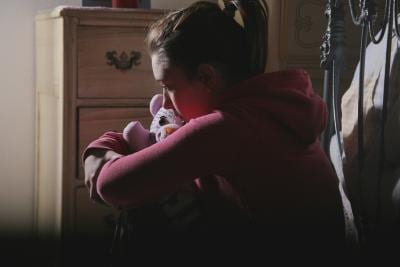While many parents are eager to discount periods of tween sadness as a mild case of the grumpies, they should not be overly dismissive of these behaviors, as tweens are being diagnosed with depression in increasing numbers. The reason for the rise in prevalence of tween depression is unknown; however, the American Academy of Child and Adolescent Psychiatry reports that this seeming increase is real and that parents should be even more vigilant and watchful for signs of potential depression to ensure that their tweens do not fall victim to bouts of depression.
Prevalence
The American Academy of Child and Adolescent Psychiatry reports that at any given time approximately 5 percent of children are suffering from depression. This alarming statistic means that out of your child’s school class of 25 students, likely at least one child is suffering from diagnosable depression.
Warning Signs
Just like adults who suffer from depression, tweens commonly show some outwardly visible signs of their depressed state. If you suspect that your tween’s bout of the blues may be more serious than simply traditional tween angst, watch for signs like changes in eating or sleeping habits, decreased academic effort, loss of interest in activities that he once loved, unexplained or more frequent emotional outbursts and mention of death or suicide. As Focus on the Family reports, all of these signs are commonly associated with the onset of tween depression.
Risk Factors
While any tween can suffer from depression, some risk factors may put your tween at greater risk for depression than others. Tweens who have had previous bouts of depression are significantly more likely to suffer another depressive episode. Additionally, tweens who experiment with, or suffer from addiction to, drugs or alcohol may be more likely to experience depression as a result of the mood-altering nature of these drugs. Some otherwise mentally healthy tweens can be sent into a depressive spiral by traumatic events within their lives as well, reports AtHealth.
Potential Treatments
Through the use of therapy, antidepressant drugs or a combination of the two, health care professionals can combat the effects of tween depression. Because no two tweens experience depression in quite the same manner, no two treatment plans are identical in nature. Generally, health care providers will experiment with an assortment of treatments and monitor the effectiveness of each before settling on a course of treatment, reports MayoClinic.com
Parent’s Role
As a parent, the best thing you can do for your depressed tween is recognize the signs and symptoms of depression early and guide your tween toward treatment. As with any medical condition, the earlier that tween depression is identified, the more effectively it can be treated and the fewer long-term effects the sufferer is likely to experience. If dealing with a tween who is in the midst of depression, try to be as supportive as possible and serve as a support for your struggling tween.





